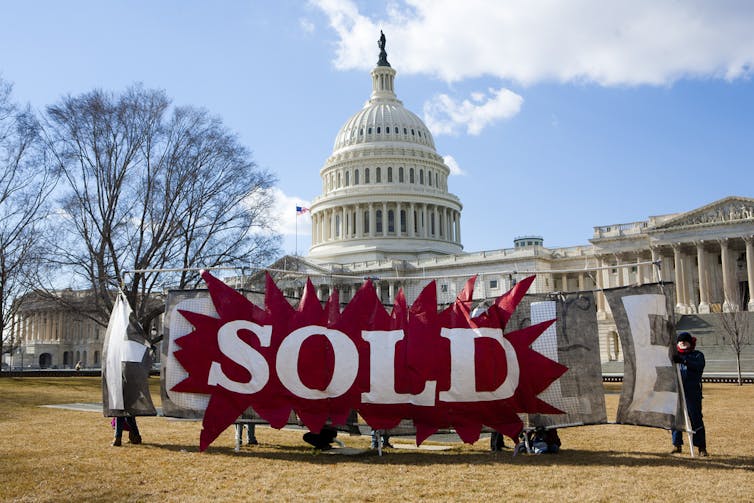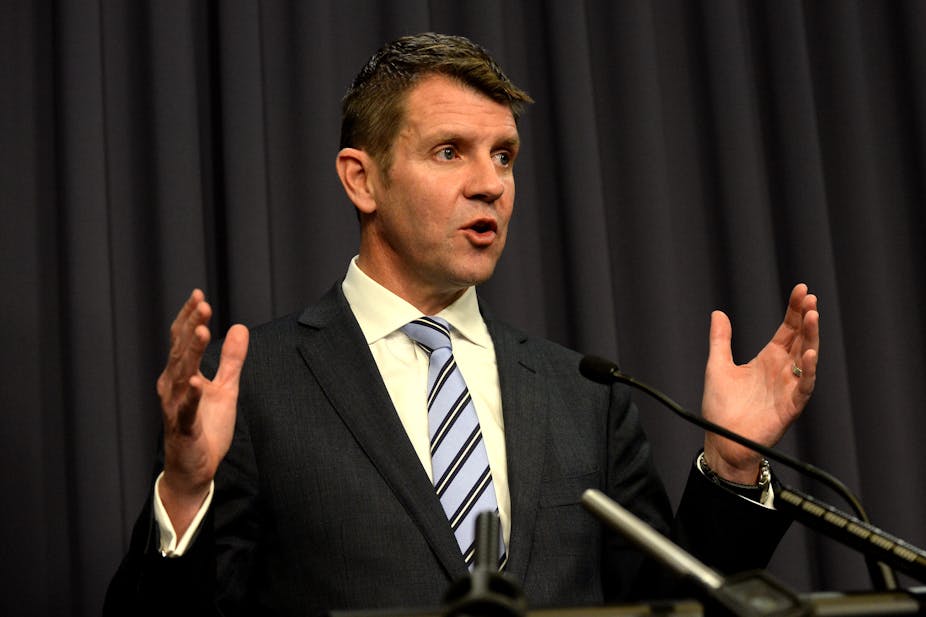The revelations concerning the sorry state of political finance in NSW continue to be aired at public hearings of the state’s Independent Commission Against Corruption (ICAC). Both the Liberal and Labor parties have been linked to allegedly corrupt activities that have already forced senior Liberal MPs, including premier Barry O’Farrell, energy minister Chris Hartcher and police minister Mike Gallacher to step down in recent months.
ICAC has exposed flagrant breaches of political finance laws and extensive networks of secretive lobbying, which hinge upon donations as the primary tool for gaining access and influence.
Individuals and parties have been implicated in the creation of sophisticated “slush funds” such as the Free Enterprise Foundation and Eightbyfive, which were designed to channel prohibited funds to MPs and party coffers. In return for political favours, MPs stand accused of soliciting, receiving and concealing payments from prohibited donors (property developers and those in the tobacco, liquor and gambling industries).
With a view to taking “decisive action” to clean up the state of political finance and restore public confidence in NSW politics, new premier Mike Baird has suggested moving to the full public funding of election campaigns. The public funding model also has the support of opposition leader John Robertson.
Full public funding is regarded by its advocates as an effective way of removing the influence of money from the political system by reducing parties’ dependence on private donations and levelling the playing field during election campaigns. It is built on the assumption that political parties are a vital and necessary element of representative democracy, and that their activities should be funded by the state.
Supported in this way, parties can spend less time fundraising and concentrate more effort on activities such as policy development.
Given the benefits parties stand to receive, it comes as no surprise that both Liberal and Labor leaders have pledged their support for the scheme.
These reforms would be radical if implemented. While a majority of countries worldwide provide for some public funding of elections and parties (around 70% of democracies in 2012), the norm is to combine this with regulated private donations.
In the United States, for example, donations to political parties and candidates are seen as a type of political speech that should be protected. Given that many people may want to donate to a party or candidate to show their support for a particular cause, banning donations altogether seems a rather blunt tool that might unnecessarily capture a legitimate show of political expression.

Mixed systems dominate because while public funding has some advantages, too great a reliance on the public purse is problematic for several reasons.
Coupled with declining memberships, parties’ growing reliance on public funds to finance their activities arguably moves political parties further away from society. Rather than relying upon members and supporters (whether unions, companies or individuals) for resources, parties look to the state for their survival.
If campaigns are fully paid for, there is little incentive to actively canvass for community support through soliciting donations or signing up members. Moving to greater levels of public funding therefore reinforces the status quo.
A related concern is the equity of funding arrangements, particularly for smaller parties and new challengers. If funding is based on vote share (a common model of allocation), new political parties will find it difficult to break into the system unless they are specifically provided for.
While political finance often attracts bipartisan support, can we trust the parties that control the parliament to provide resources for the groups that might challenge them in the future?
Although it may provide for fairer election campaigns, public funding won’t necessarily address the underlying issue of buying access to politicians. Political parties will still presumably need to seek funds for their activities outside election campaigns, and continue to enroll members.
Bans on donations cannot stop political parties setting “flexible” membership fees, and through various organisational forums, such as the Millennium Forum, which is being probed by ICAC, and the North Sydney Forum, which has been linked to federal treasurer Joe Hockey. Attempts to regulate this form of party activity would be difficult, as placing restrictions upon how political parties construct membership and organise themselves are limited by freedoms of political association.
As is stands, NSW political parties already benefit from comparatively high levels of public funding. Provided they receive at least 4% of the vote, parties are reimbursed around 75% of the amount that they are entitled to spend during an election campaign.
Subject to expenditure and donation caps, NSW political finance is the most heavily regulated regime in Australia.
Although Baird has called for public debate on full state funding, he may find that a workable solution is difficult to come by. Given that what is currently being exposed by ICAC relates predominantly to systemic breaches of existing laws, looking to strengthen the enforcement mechanisms currently in place might provide a better approach than reforming the entire system.

